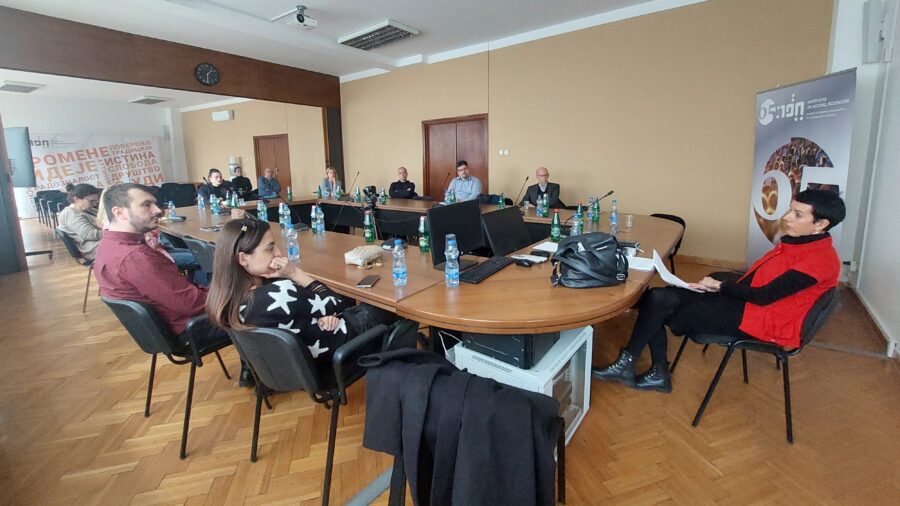As part of the cycle of lectures by new researchers at the Institute of Social Sciences, dr Dejana Vukasović, a a Principal Research Fellow from the Centre for Politicological Research and Public Opinion, held a lecture on November 28, 2024 in the Great Hall of the Institute of Social Sciences on the topic “Discursive identity construction: the EU as an actor in international relations“.
The focus of this lecture is to demonstrate how the European Union is presented as a key actor in international relations within official discourse. In this sense, the lecture was focused on the EU’s development as a community of values, highlighting its transformative power to extend these values beyond its borders, thus contributing to the “normality” of international relations. It also presented the EU as a global actor, particularly emphasizing its unique role as a security actor with specific responsibilities in the modern world. The significance of the “politics/academy” nexus was highlighted, specifically the “blurring” of the boundary between academic research and professional politics, which contributes to building a positive EU identity and gives legitimacy to the project of European integration.
During the lecture, the discursively constructed identity of the EU was elaborated. As a specific set of representations and practices, discourses produce meanings and form identities. At the base of discourse is power, which is reflected in its ability to impose its categories, to present someone or something in a certain way. In this context, different conceptions of the understanding of the power of the EU during the previous decades were pointed out, from the concept of civil and military power that prevailed in the 1970s, to the generally accepted concept of the EU as a normative power that was adopted in the early 2000s. In the official discourse, the EU does not mean only the EU as a specific subject in international politics, but also the nature of the relations that the EU has with other actors, i.e. to external others. The aim of the lecture was to point out the importance of discourse as a key mechanism in the social construction of reality and the definition of power relations in society.

